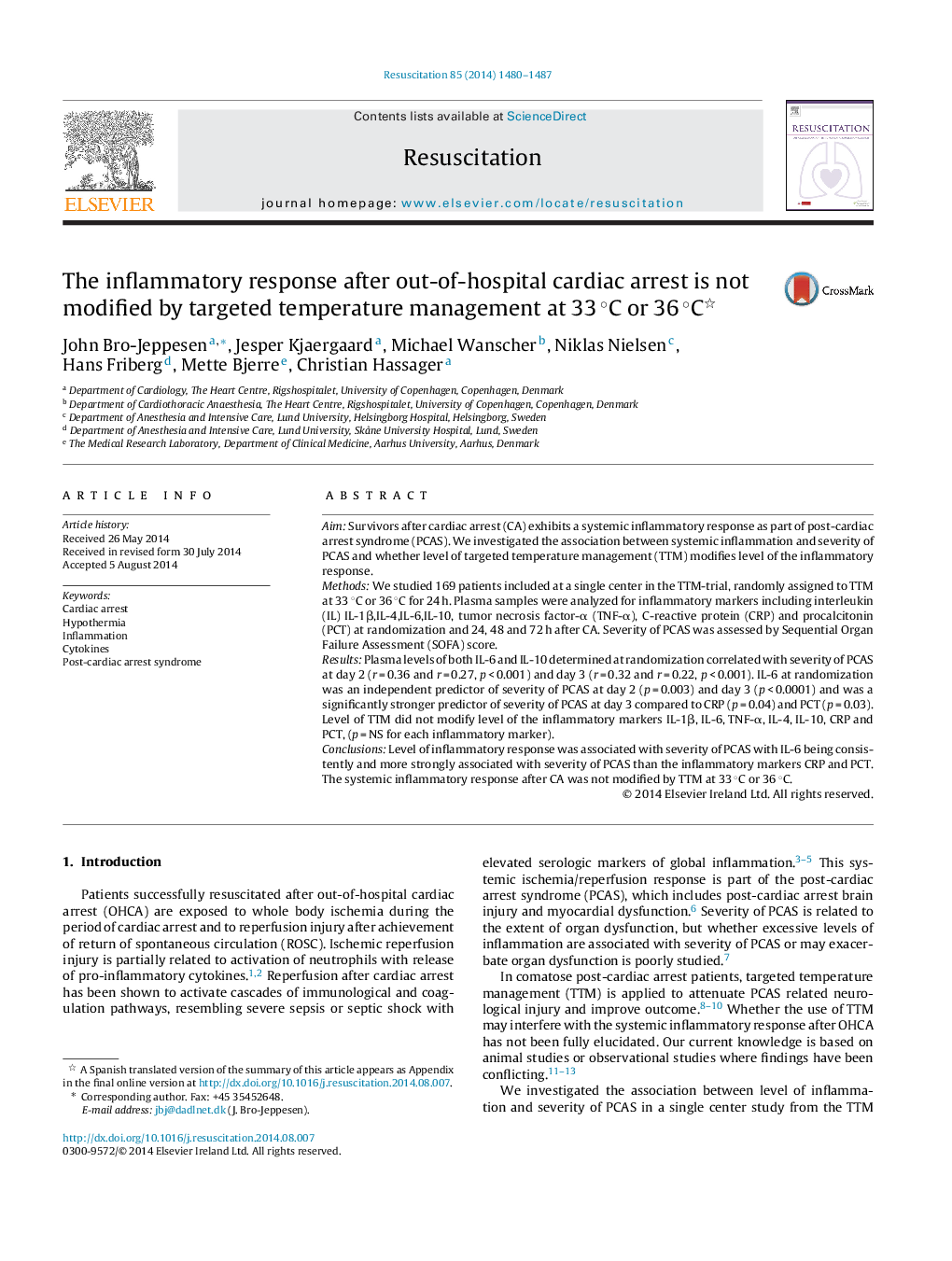| Article ID | Journal | Published Year | Pages | File Type |
|---|---|---|---|---|
| 5998164 | Resuscitation | 2014 | 8 Pages |
AimSurvivors after cardiac arrest (CA) exhibits a systemic inflammatory response as part of post-cardiac arrest syndrome (PCAS). We investigated the association between systemic inflammation and severity of PCAS and whether level of targeted temperature management (TTM) modifies level of the inflammatory response.MethodsWe studied 169 patients included at a single center in the TTM-trial, randomly assigned to TTM at 33 °C or 36 °C for 24 h. Plasma samples were analyzed for inflammatory markers including interleukin (IL) IL-1β,IL-4,IL-6,IL-10, tumor necrosis factor-α (TNF-α), C-reactive protein (CRP) and procalcitonin (PCT) at randomization and 24, 48 and 72 h after CA. Severity of PCAS was assessed by Sequential Organ Failure Assessment (SOFA) score.ResultsPlasma levels of both IL-6 and IL-10 determined at randomization correlated with severity of PCAS at day 2 (r = 0.36 and r = 0.27, p < 0.001) and day 3 (r = 0.32 and r = 0.22, p < 0.001). IL-6 at randomization was an independent predictor of severity of PCAS at day 2 (p = 0.003) and day 3 (p < 0.0001) and was a significantly stronger predictor of severity of PCAS at day 3 compared to CRP (p = 0.04) and PCT (p = 0.03). Level of TTM did not modify level of the inflammatory markers IL-1β, IL-6, TNF-α, IL-4, IL-10, CRP and PCT, (p = NS for each inflammatory marker).ConclusionsLevel of inflammatory response was associated with severity of PCAS with IL-6 being consistently and more strongly associated with severity of PCAS than the inflammatory markers CRP and PCT. The systemic inflammatory response after CA was not modified by TTM at 33 °C or 36 °C.
